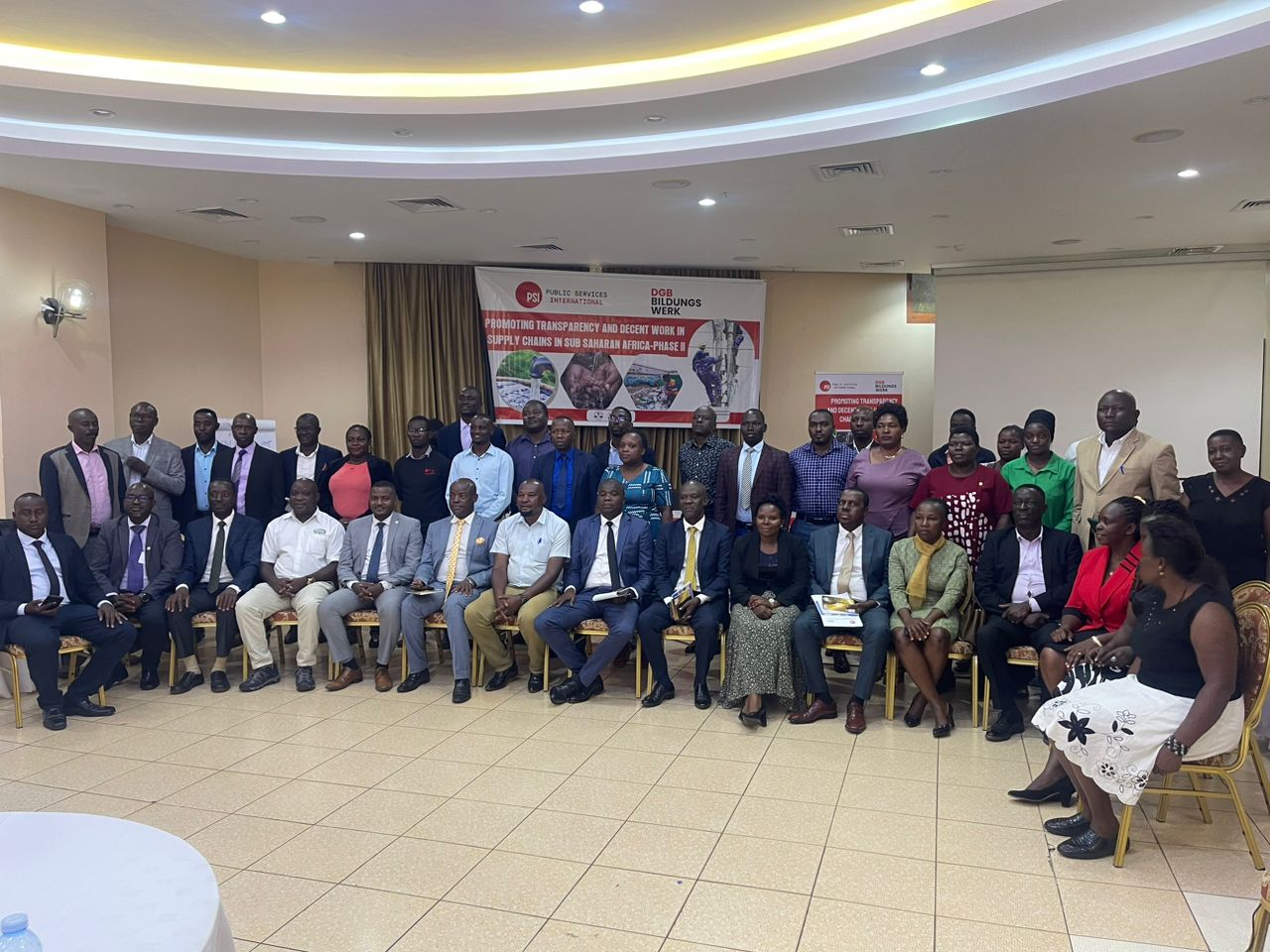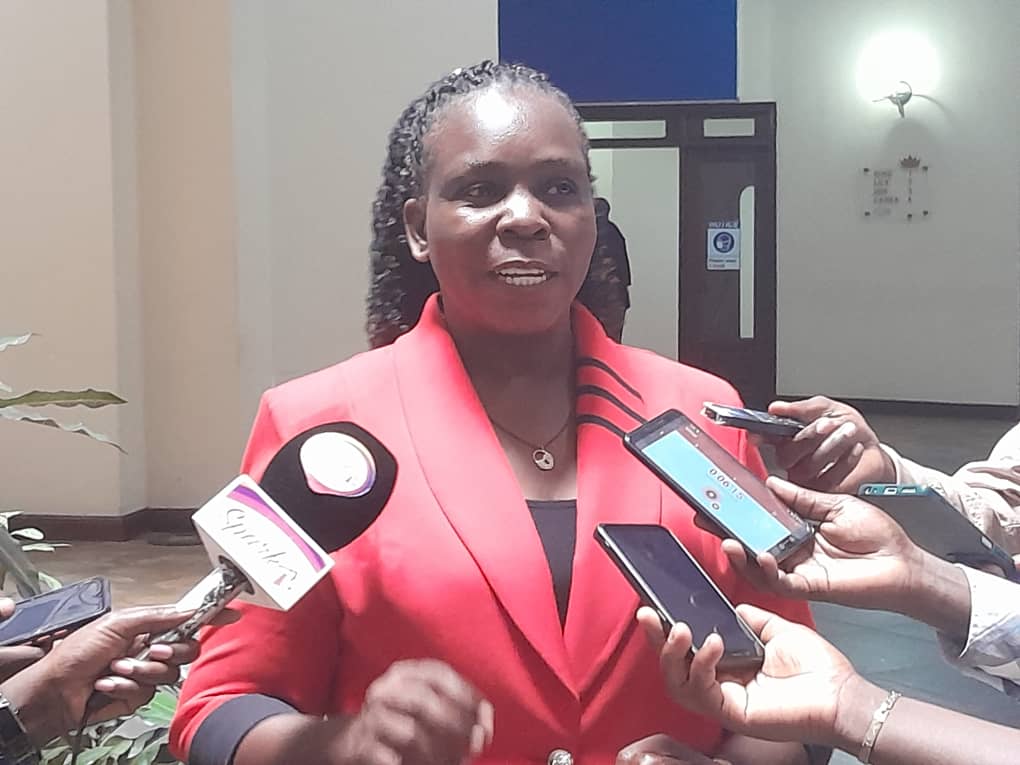
KAMPALA – Public Services International (PSI) on Monday convened a stakeholders engagement to tackle Uganda’s pressing waste management issues. This initiative is part of PSI’s broader project, “Promoting transparency and decent work in supply chains in electricity, water and waste services,” which has been underway since 2020.
Over the past five years, PSI has conducted extensive research, meetings, and benchmarking visits to understand the complexities of the waste, water, and energy sectors. While Uganda has made notable strides in water and energy, waste management remains a persistent challenge, exacerbated by recent incidents at Kiteezi landfill.
Evelyn Aketch from PSI emphasized that waste management transcends politics, posing a significant public health risk.
She highlighted the dire situation of waste management workers, predominantly middle-aged or elderly women, who face lack of protective equipment, low pay, delayed salaries, gender-based violence, high employment turnover, and frequent strikes.
These challenges undermine their ability to provide quality services, perpetuating the waste management crisis.
“Examining the workforce handling waste, it’s clear they lack the energy to perform quality work. Mostly elderly women and men, their physical capabilities are stretched thin. Compounding this, many labor without essential protective gear like gloves and boots.”
Aketch expressed that while existing policies outline responsibilities in waste management, a progressive approach to effective waste handling remains elusive.
“We must move beyond political affiliations and recognize waste management as a pressing public health concern. Cholera outbreaks don’t discriminate based on party lines – NUP, NRM, or FDC.”
She challenged the stakeholders to transcend political narratives and focus on the human impact.
Leveraging the government’s competence-based curriculum in secondary schools, Aketch proposed schools-local governments partnerships to collect market waste and convert it into energy and organic fertilizer.
“Why send waste to landfills when schools can transform it into valuable resources? This innovative approach can drive meaningful change in waste management.”

Entebbe Municipality Mayor, Fabrice Brad Rulinda, stressed the urgency of moving beyond policy to effective implementation.
“We boast excellent policies, but implementation remains the Achilles’ heel,” he noted.
Rulinda advocated for recycling programs, a national waste management plant, and partnerships with private sector investors.
He also emphasized the need for realistic approaches, acknowledging that sorting waste at source may not be feasible for all Ugandans.
Dr. Byakatonda Abdul, Workers’ MP, praised PSI for organizing a stakeholders’ engagement on waste management, emphasizing its critical importance as countries transition to low-medium income status.
“Effective waste management is essential for sustainable development, and the MP acknowledged that it’s a key aspect to prioritize.”
Furthermore, the MP revealed that as lawmakers, they are going to prepare a motion to ensure waste management is beautified and efficiently managed.
Bugahya County MP Wakabi Pius said, “As I move forward from here, I plan to collaborate with Parliament’s legal department to draft a motion urging the government to establish a special fund dedicated to waste management. In my opinion, having poor roads is a lesser concern compared to the consequences of inadequate waste management.”
The stakeholders engagement marked a pivotal moment in addressing Uganda’s waste management woes.
Participants explored innovative solutions:
- Integrating waste management into school curricula
- Partnering schools with local governments to convert waste into energy and organic fertilizers
- Promoting community-led waste management initiatives
- Encouraging private sector investment in waste recycling
As Uganda moves forward, prioritizing effective waste management is crucial. The collaboration between PSI, government officials, and stakeholders signals a positive shift towards tackling this critical issue.
Effective waste management is not only a public health imperative but also an economic opportunity. By embracing sustainable practices and innovative solutions, Uganda can transform its waste management challenges into a catalyst for growth and development.





